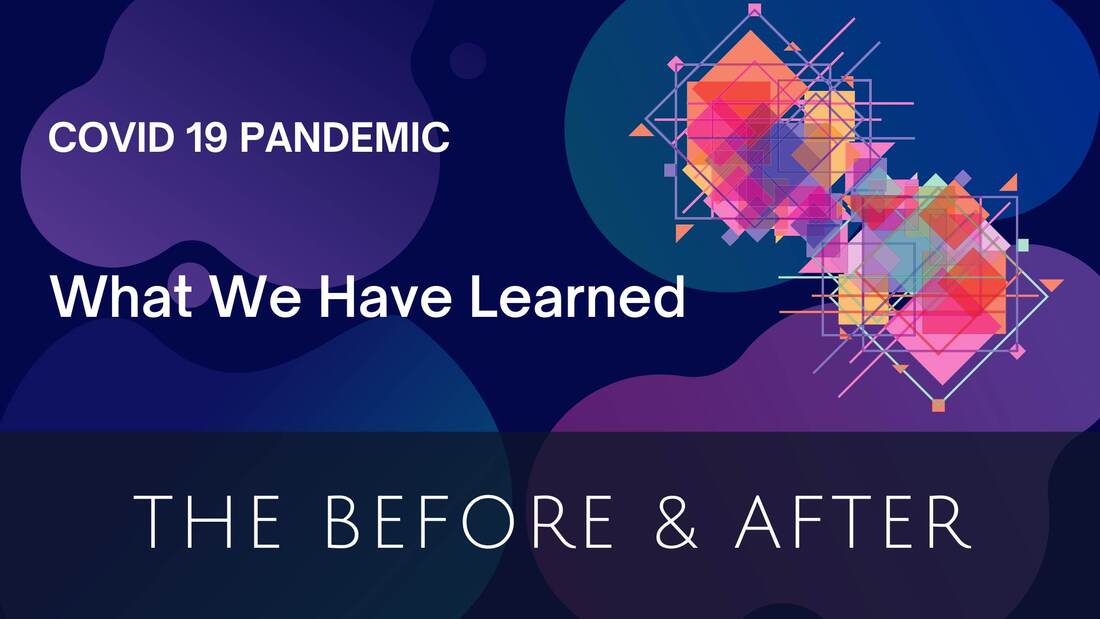COVID 19 PANDEMIC BEFORE AND AFTER
Housing 4 Now's Impact On Local Communities, During COVID-19
The disease caused by the SARS-CoV-2 virus, emerged in late 2019 and rapidly escalated into a global pandemic by March 2020. The world, unprepared for such a vast public health crisis, faced a period of immense social and economic change. In the midst of this chaos, nonprofit organizations like Housing 4 Now stepped forward to become vital pillars of support within their local communities.
Before the Pandemic: A History of COVID-19
The Coronavirus is a large family of viruses, some of which can cause illness in humans. Coronaviruses were first identified in the mid-20th century, and several strains have caused notable outbreaks in recent decades, including SARS (Severe Acute Respiratory Syndrome) in 2002-2004. The virus that causes COVID-19, however, was a rare coronavirus, meaning it had not previously been identified in humans.
The Pandemic and Housing 4 Now's Response
As COVID-19 spread, lockdowns and social distancing measures became the norm. Housing 4 Now understood the unique challenges these measures posed for many people. Here's how we played a crucial role:
At the time of the pandemic "Policing Powers" were granted by local courts and governmental agencies to have authority to enact regulations to protect public health, safety, and welfare. In the context of the pandemic, this power allowed states and localities to issue various orders, including:
Challenges to these closures arose based on the First Amendment's Free Exercise Clause, which protects religious freedom. Some argued these restrictions placed a greater burden on religious institutions than on secular activities. Court rulings on these challenges were mixed.
In Arizona, state statues ARS 41-1493 through ARS 41-1494 (FERA), favor faith based orgainzations. The existing law prevents the government from burdening a person’s free exercise of religion unless there is a compelling government interest and the restriction is as narrow as possible. Then came HB2507, titled “religious services; essential services,” which declares religion an essential service in a pandemic, "STATE GOVERNMENT MAY NOT TAKE ANY DISCRIMINATORY ACTION AGAINST A RELIGIOUS ORGANIZATION, ... ". B. "DURING A STATE OF EMERGENCY, RELIGIOUS SERVICES ARE DECLARED ESSENTIAL SERVICES AND ARE DEEMED NECESSARY AND VITAL TO THE HEALTH AND WELFARE OF THE PUBLIC". C. "STATE GOVERNMENT SHALL ALLOW A RELIGIOUS ORGANIZATION TO CONTINUE TO OPERATE AND ENGAGE IN RELIGIOUS SERVICES DURING THE STATE OF EMERGENCY TO THE SAME OR GREATER EXTENT THAN STATE GOVERNMENT ALLOWS OTHER ORGANIZATIONS OR BUSINESSES THAT PROVIDE ESSENTIAL SERVICES THAT ARE NECESSARY AND VITAL TO THE HEALTH AND WELFARE OF THE PUBLIC TO OPERATE".
Ref Law: Arizona’s Free Exercise of Religion Act (FERA)
Ref Law: HB2507 Religious Services & Essential Services
A Lasting Legacy
The COVID-19 pandemic's long-term effects are still unfolding. However, the actions taken by Housing 4 Now during this unprecedented time brought peaceof mind to many faith based organizations, as a vital community resource. Housing 4 Now's innovative approach to assists residents with off-grid living, supporting first responders, and providing crucial information and legal guidance stands as a testament to commitment to the well-being of local communities.
_____________________________________________________________________________________________
The disease caused by the SARS-CoV-2 virus, emerged in late 2019 and rapidly escalated into a global pandemic by March 2020. The world, unprepared for such a vast public health crisis, faced a period of immense social and economic change. In the midst of this chaos, nonprofit organizations like Housing 4 Now stepped forward to become vital pillars of support within their local communities.
Before the Pandemic: A History of COVID-19
The Coronavirus is a large family of viruses, some of which can cause illness in humans. Coronaviruses were first identified in the mid-20th century, and several strains have caused notable outbreaks in recent decades, including SARS (Severe Acute Respiratory Syndrome) in 2002-2004. The virus that causes COVID-19, however, was a rare coronavirus, meaning it had not previously been identified in humans.
The Pandemic and Housing 4 Now's Response
As COVID-19 spread, lockdowns and social distancing measures became the norm. Housing 4 Now understood the unique challenges these measures posed for many people. Here's how we played a crucial role:
- Empowering Off-Grid Living: Recognizing the desire of some individuals to minimize contact with the general public, Housing 4 Now offered free and discounted lithium batteries to facilitate off-grid living solutions. This innovative approach provided a sense of control and safety for those seeking self-isolation.
- Supporting First Responders: The tireless efforts of first responders during the pandemic were invaluable. Housing 4 Now provided free and discounted lithium batteries to first responders for their personal use. This not only aided them in off-grid preparedness but also offered a well-deserved financial reprieve during a demanding time.
- Housing 4 Now As An Information Hub: The Housing 4 Now website transformed into a critical resource during the COVID 19 Pandemic Emergencies. By providing clear and up-to-date information on various pandemic-related issues, the website became a trusted source for the community.
- Legal Support for Houses of Worship: Many local churches faced closure during the first outbreaks of the pandemic. At that time Housing 4 Now offered informative guidance to houses of worship and other fatih based groups. This information helped them to navigate throw the legal aspects of illegal closure by governmental officials, of community churches and local restaurants.
At the time of the pandemic "Policing Powers" were granted by local courts and governmental agencies to have authority to enact regulations to protect public health, safety, and welfare. In the context of the pandemic, this power allowed states and localities to issue various orders, including:
- Stay-at-home orders: These restricted movement and gatherings to slow the spread of the virus.
- Non-essential business closures: This category could include restaurants depending on how the order was defined.
- Gathering restrictions: These limited the size of permissible gatherings, potentially impacting church services.
- For a compelling government interest: Protecting public health during a pandemic is a compelling reason.
- Narrowly tailored: The restrictions should target behaviors most likely to spread the virus, not impose unnecessary burdens.
- Least restrictive means: The government should consider alternative measures before resorting to closures.
Challenges to these closures arose based on the First Amendment's Free Exercise Clause, which protects religious freedom. Some argued these restrictions placed a greater burden on religious institutions than on secular activities. Court rulings on these challenges were mixed.
In Arizona, state statues ARS 41-1493 through ARS 41-1494 (FERA), favor faith based orgainzations. The existing law prevents the government from burdening a person’s free exercise of religion unless there is a compelling government interest and the restriction is as narrow as possible. Then came HB2507, titled “religious services; essential services,” which declares religion an essential service in a pandemic, "STATE GOVERNMENT MAY NOT TAKE ANY DISCRIMINATORY ACTION AGAINST A RELIGIOUS ORGANIZATION, ... ". B. "DURING A STATE OF EMERGENCY, RELIGIOUS SERVICES ARE DECLARED ESSENTIAL SERVICES AND ARE DEEMED NECESSARY AND VITAL TO THE HEALTH AND WELFARE OF THE PUBLIC". C. "STATE GOVERNMENT SHALL ALLOW A RELIGIOUS ORGANIZATION TO CONTINUE TO OPERATE AND ENGAGE IN RELIGIOUS SERVICES DURING THE STATE OF EMERGENCY TO THE SAME OR GREATER EXTENT THAN STATE GOVERNMENT ALLOWS OTHER ORGANIZATIONS OR BUSINESSES THAT PROVIDE ESSENTIAL SERVICES THAT ARE NECESSARY AND VITAL TO THE HEALTH AND WELFARE OF THE PUBLIC TO OPERATE".
Ref Law: Arizona’s Free Exercise of Religion Act (FERA)
Ref Law: HB2507 Religious Services & Essential Services
A Lasting Legacy
The COVID-19 pandemic's long-term effects are still unfolding. However, the actions taken by Housing 4 Now during this unprecedented time brought peaceof mind to many faith based organizations, as a vital community resource. Housing 4 Now's innovative approach to assists residents with off-grid living, supporting first responders, and providing crucial information and legal guidance stands as a testament to commitment to the well-being of local communities.
_____________________________________________________________________________________________
|
For more information about Covid-19, see our eBook produced by our sister website "Lord's Glory Ministry". The eBook, COVID-19 The Real Truth, is an in-death documentary about the beginnings of COVID-19 and how is got to where it is to date.
For up-to-date concerns, learn more about COVID-19 from reputable organizations:
Long-Term Effects of COVID-19 It's important to be aware of the potential long-term effects of COVID-19, sometimes referred to as "Long COVID." These effects can vary and may include fatigue, shortness of breath, difficulty concentrating, and muscle or joint pain. Reliable sources for information on Long COVID:
|



